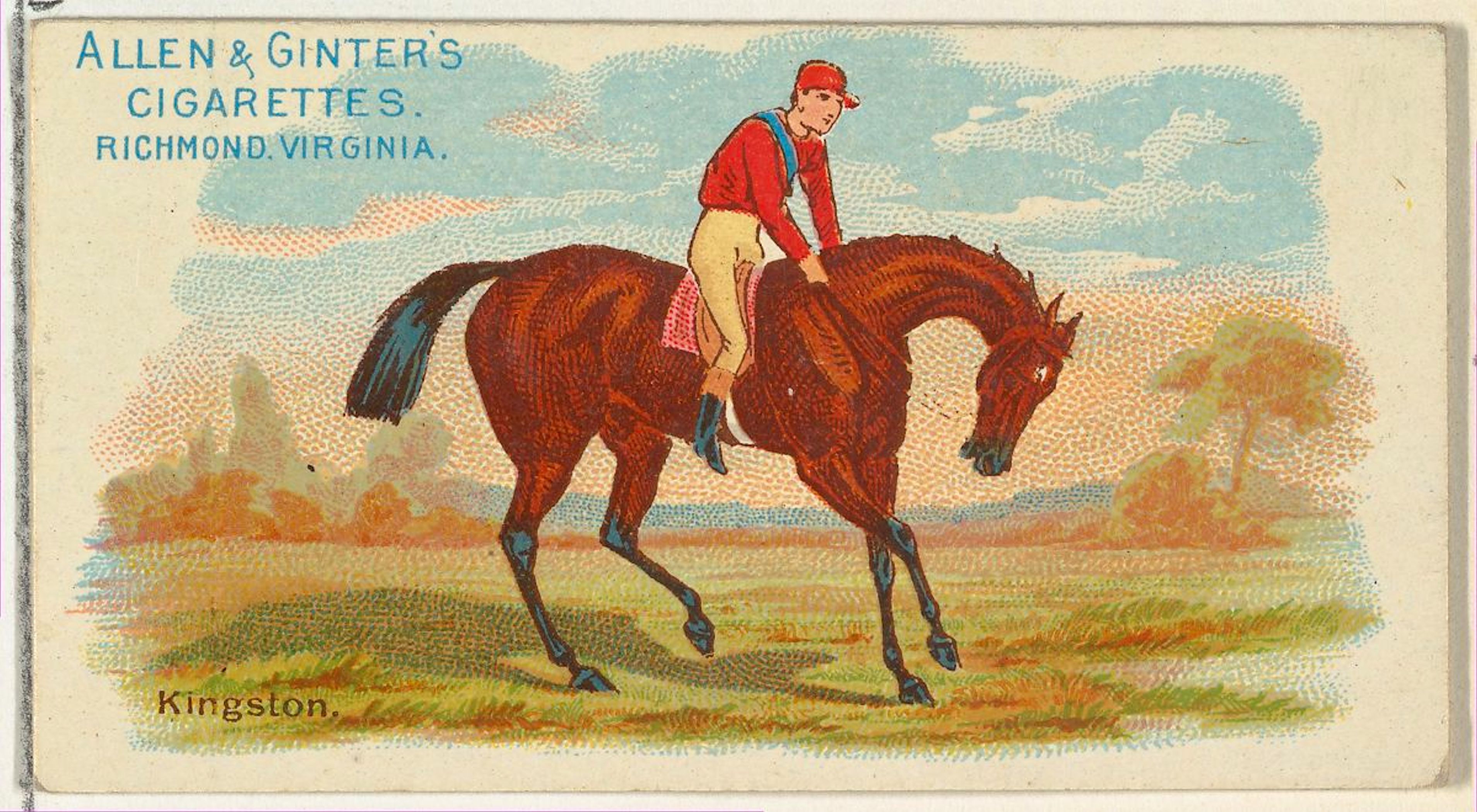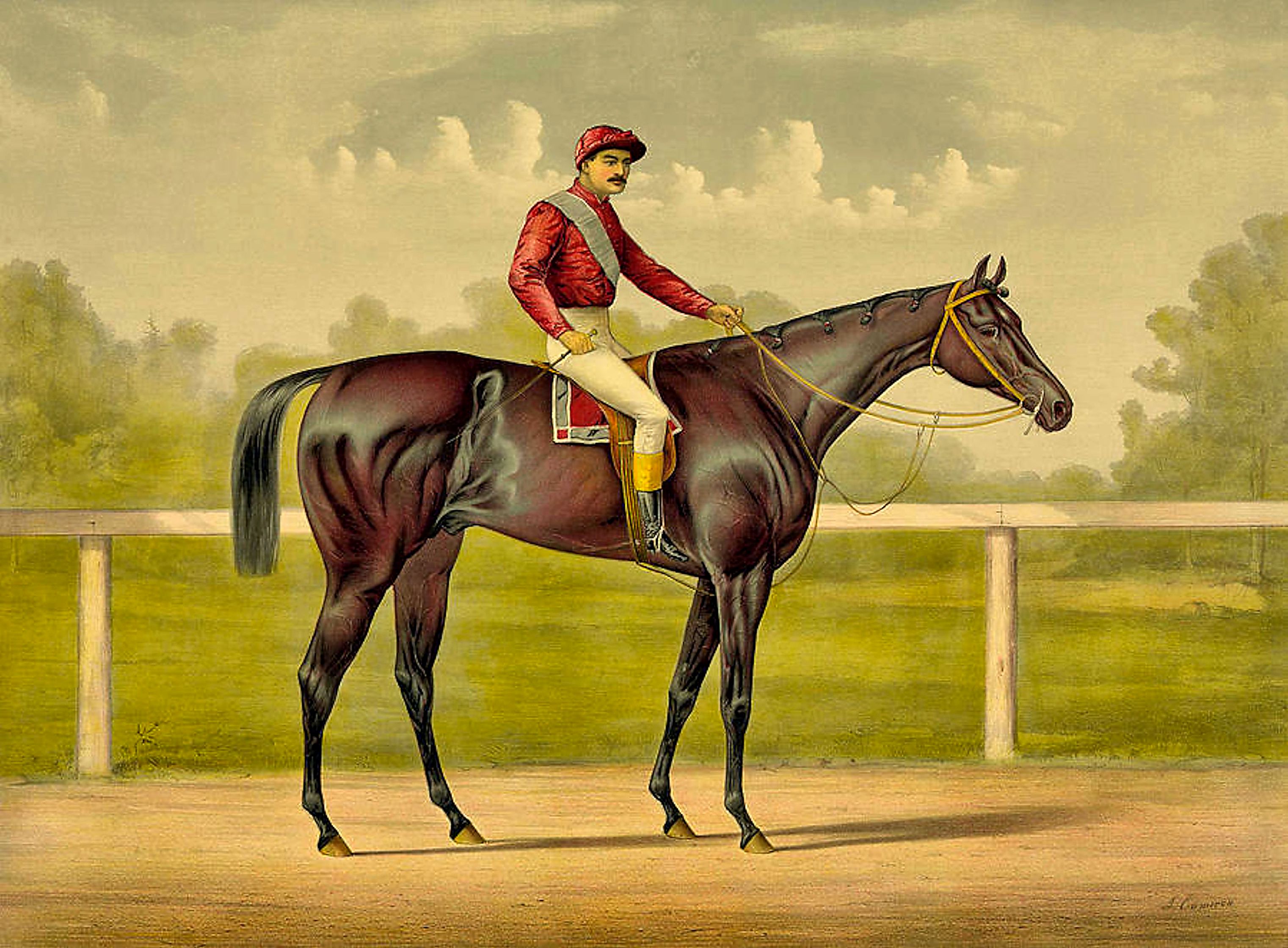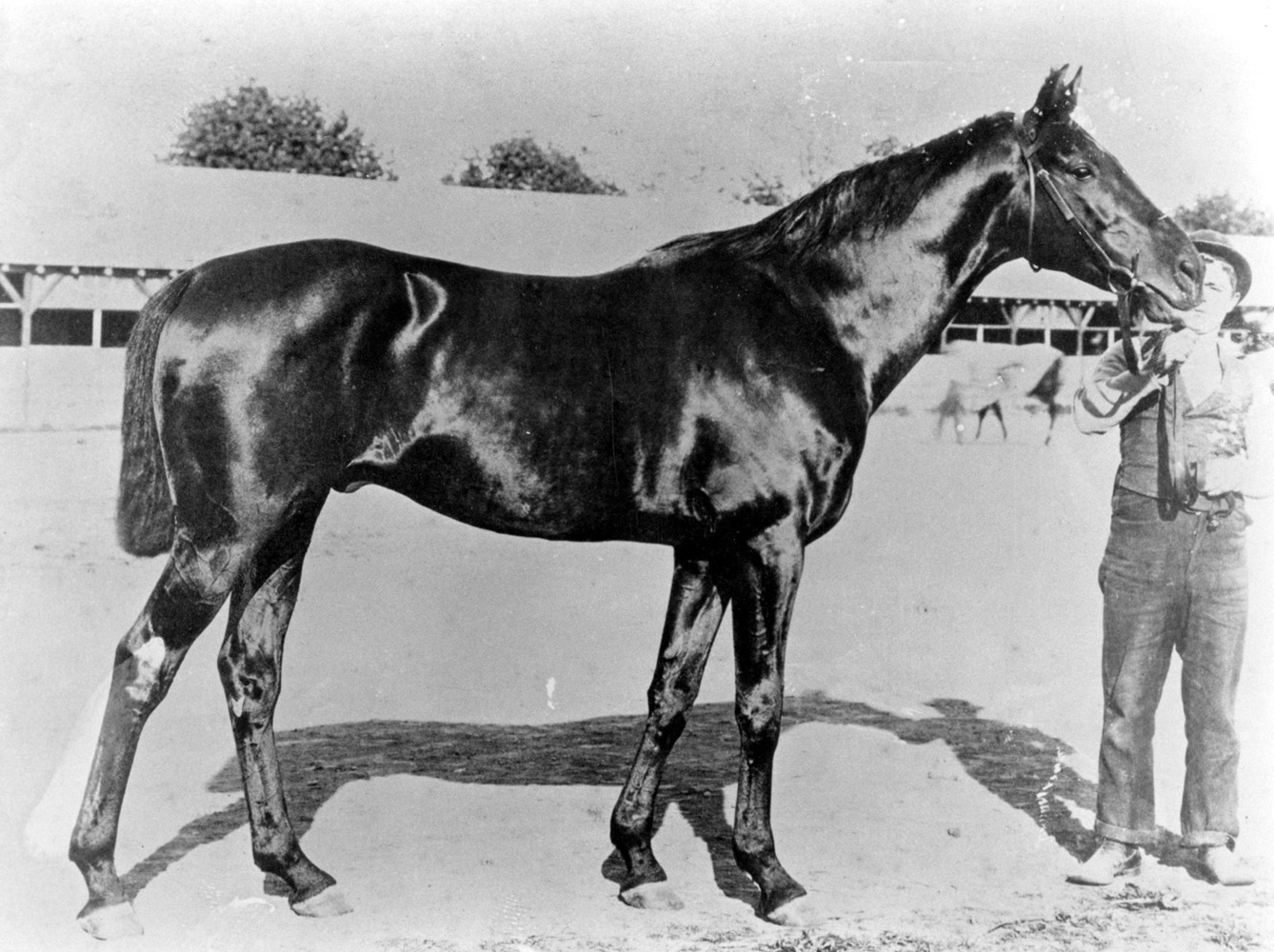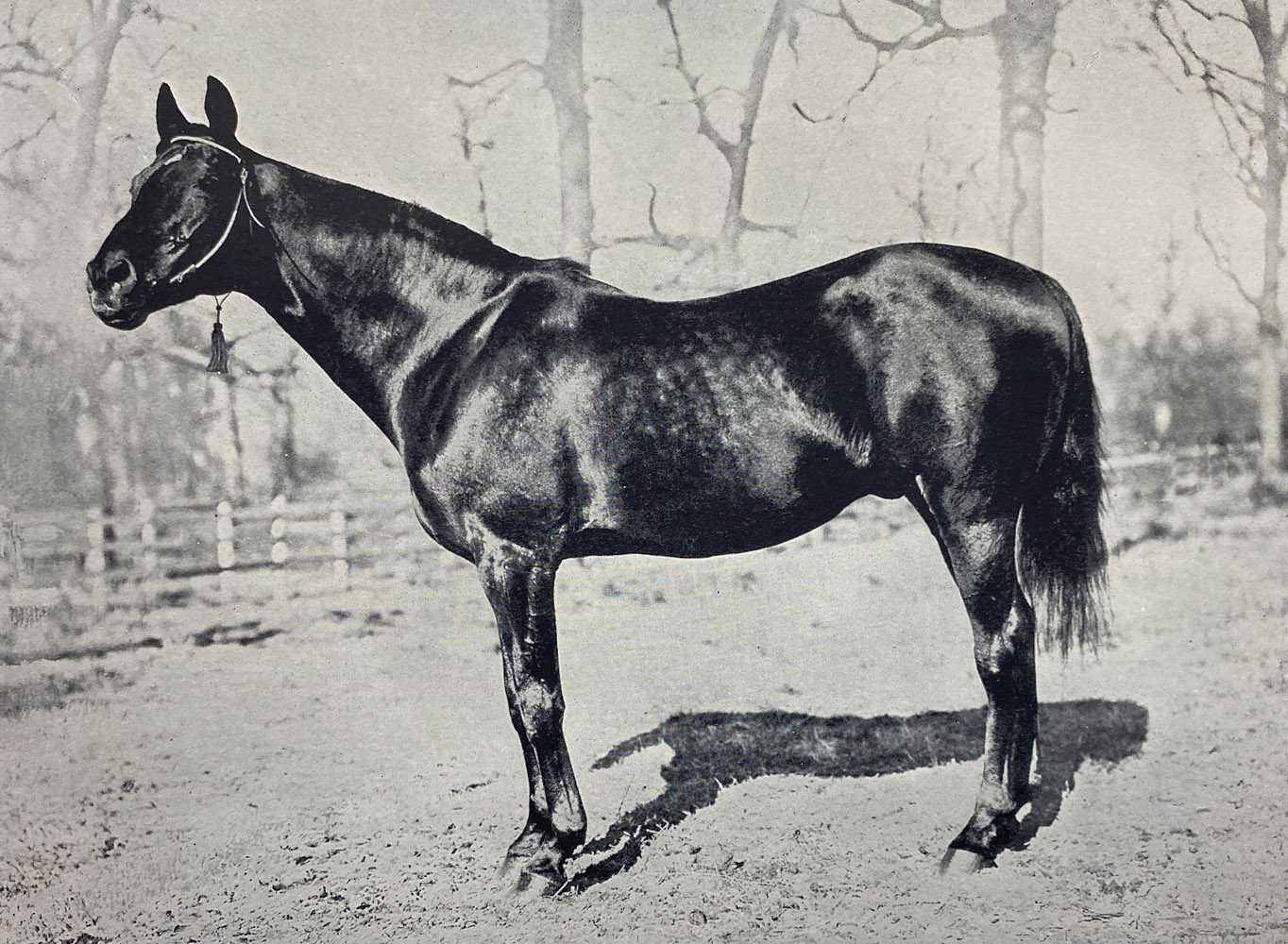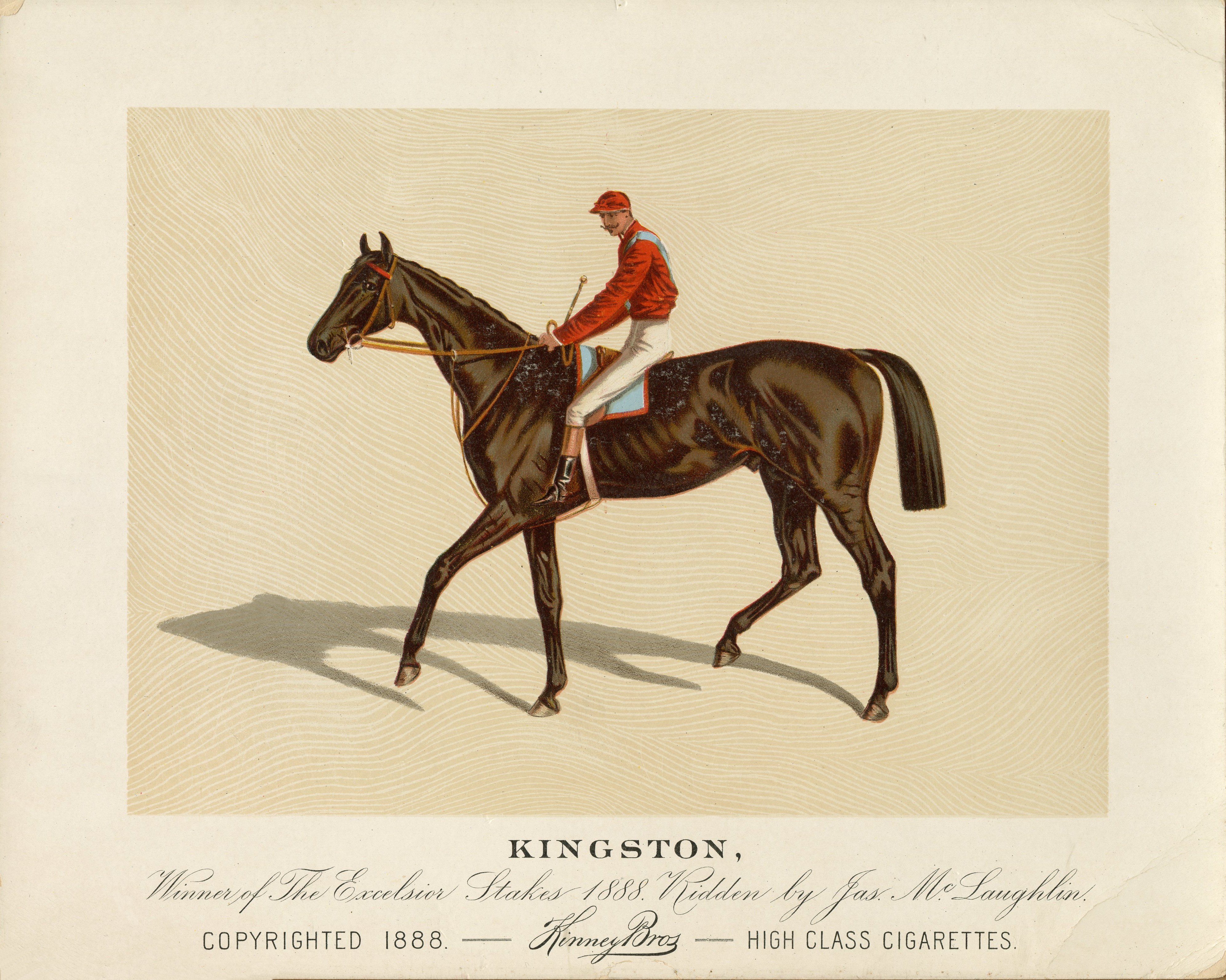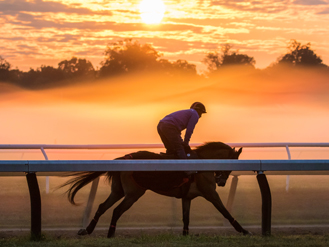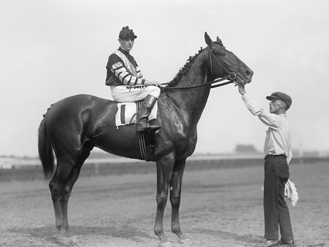Kingston (KY)
Kingston won an all-time record 89 races during his nine years of competition and retired in 1894 with career earnings of $140,195, which was the highest total in racing history at the time.
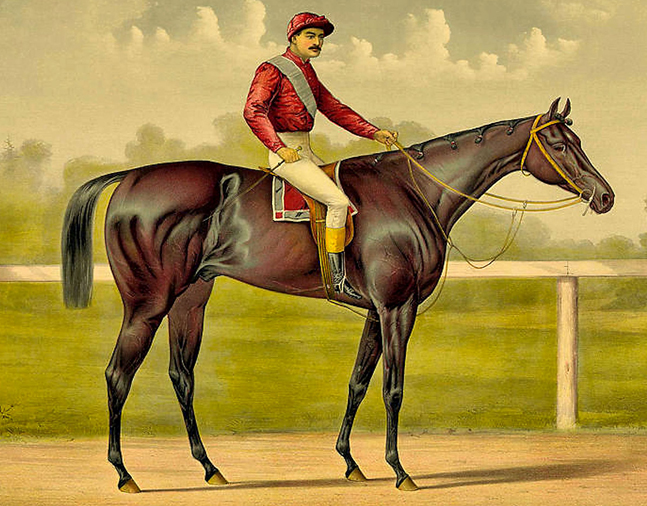
1955
1884
Spendthrift
Kapanga
Victorious
James R. Keene
E. V. Snedeker
J. F. Cushman
Dwyer Bros. Stable
Castleton Stud
E. V. Snedeker
Hardy Campbell, Jr.
1886-1894
$140,195
Racing Record
138
Starts
| 1886 | 6 | 2 | 4 | 0 | $11350 $11,350 |
| 1887 | 18 | 13 | 2 | 2 | $17850 $17,850 |
| 1888 | 14 | 10 | 3 | 1 | $17045 $17,045 |
| 1889 | 15 | 14 | 1 | 0 | $22520 $22,520 |
| 1890 | 10 | 9 | 1 | 0 | $16890 $16,890 |
| 1891 | 21 | 15 | 5 | 1 | $26815 $26,815 |
| 1892 | 20 | 13 | 6 | 1 | $17390 $17,390 |
| 1893 | 25 | 9 | 8 | 5 | $7660 $7,660 |
| 1894 | 9 | 4 | 3 | 2 | $2675 $2,675 |
Biography
Kingston won an all-time record 89 races during his nine years of competition and retired in 1894 with career earnings of $140,195, which was the highest total in racing history at the time.
Bred by James R. Keene at his Castleton Stud near Lexington, Kentucky, Kingston was a son of Spendthrift out of the Victorious mare Kapanga. Keene, who was experiencing financial difficulties at the time, sold Kingston to trainer Evert Snedeker and partner J. F. Cushman.
At age 2 in 1886, Kingston showed some promise with two wins and four placings in six starts, which prompted Mike and Phil Dwyer to purchase the colt for $12,500. The Dwyer brothers turned Kingston over to Hall of Fame trainer Frank McCabe.
Kingston flourished for McCabe and the Dwyer brothers. He compiled a record of 13-2-2 from 18 starts as a 3-year-old, lost only once in 15 starts at age 4, and suffered only one loss at age 5 in 10 starts. During one stretch — from August of 1888 through May of 1891 — Kingston won 33 of 35 races. His only losses during that time were to Hall of Famer Hanover and top handicapper Los Angeles. Kingston’s most successful season in terms of earnings was in 1891, when he collected $26,815 in purses and owned a record of 15-5-1 from 21 starts.
Kingston set an American record of 1:27¼ for seven furlongs as a 3-year-old and another American mark at age 5, covering 1¼ miles in 2:06½. In the latter, with Hall of Famer Isaac Murphy up, Kingston defeated Tenny in the 1889 First Special at Gravesend in one of his finest efforts.
In an era during which horses commonly ran 1½ miles three times a week, Kingston was regarded primarily as a sprinter. Of his 138 races, only 18 were at 1¼ miles or longer (of which he won 11). Although not known as a distance horse, Kingston was both durable and consistent. He finished outside the top three only four times in his career.
In 1891, the Dwyer brothers split up and Mike Dwyer bought out his brother’s interest in Kingston for $30,000. He turned the horse over to Hardy Campbell, Jr. to train. By the end of 1892, Kingston had won 76 times in 104 career starts. He won his 30th and final stakes race, the Flight Stakes, in September 1892.
At ages 9 and 10, Mike Dwyer sent Kingston out 34 more times, but never in a stakes race and never at more than a mile. Kingston won 13 of those races and finished in the top three 31 times. At 10, in 1894, he closed out his career by winning three of his final four races in an 11-day span.
Kingston went on to have a solid career as a stallion, topping the American sire standings in 1900 and 1910. He sired the champion Novelty, Belmont Stakes winner Ildrim, and Futurity winner Ballyhoo Bey. Kingston died on Dec. 6, 1912, at Castleton Stud at the age of 28.
Achievements
Co-Champion 3-Year-Old Male — 1887
Co-Champion Handicap Male — 1889
Co-Champion Handicap Male — 1890
Media
